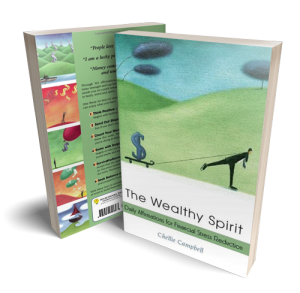175 – June 24
“The first payment is what made us think we were prosperous, and the other nineteen is what showed us we were broke.”—Will Rogers
Owning your own home is one of the American Dreams. But it seems to me that many people scrimp and save to buy a home and then are “house poor”—they can’t go anywhere or do anything because all their available income is going to pay their mortgage! In Rich Dad, Poor Dad, Robert Kiyosaki states he doesn’t even consider a home an asset. He says it’s because there are so many other attendant expenses that go with home ownership that it is a drain on most people’s income. It is a liability that “takes money out of your pocket” rather than an asset that “puts.” During recessions, we all know it is possible to lose money in real estate—it’s not a slam-dunk investment.
When considering whether or not to buy a house or condominium, consider first your lifestyle. Are you part of a family with children who want the stability of a home and neighborhood? Are you home a lot of the time? Are you single, do you travel a lot or are you out every evening? If so, how much value are you getting out of owning a home if you’re never there? (For me, this is sort of like spending a lot of money on a hotel room—the only time I’m there is when I’m asleep!)
Yes, there are tax advantages to owning a home as an investment vehicle, since you get an income tax deduction for your mortgage interest. But take another look at the total amount of interest you are paying over the life of a mortgage loan and it might not look so attractive. And don’t forget your budget for all the expenses involved with home ownership:
- Mortgage payment—principal and interest
- Interior decorating, furniture, fixtures
- Carpets and drapes
- Appliances
- Landscaping
- Lawn and garden maintenance
- Construction, renovations, repairs—major and minor
- Property taxes
- Homeowner’s insurance
- And then, whenever your income increases, you buy a bigger house with a bigger mortgage and need better furniture, appliances, and landscaping to go with it, and you’re house-poor again.
Today’s Affirmation:
“I appreciate all my appreciating assets!”
This page is a big prophetic, since so many people have suffered in the housing bubble of the Great Recession. I feel so badly for everyone who lost their homes to foreclosure since they were under-water and owed more on the home than they could sell it for. Sure, some people did “liar loans” and were allowed to borrow more on the home at a bargain adjustable interest rate for a couple of years. They were gambling that housing prices would continue to go up and they’d make money on the investment and be able to refinance later because their homes would be worth more.
But when housing prices sank, they were caught with a losing investment and a loan they couldn’t pay. That’s the downside of the gamble. There is no slam-dunk investment where you get fabulous returns and make a fortune without risking this kind of a downside. You can take the slow and steady course and just buy interest-bearing bonds or CDs or other safe savings accounts. You won’t make much money, but your capital will be safe. Right now, that’s looking like a good choice.
To really get ahead, you have to make riskier investments with the chance you’ll lose some of your capital. There’s the rub.
What’s important to remember is that you aren’t doomed if you made a bad investment. Even if you lost everything, this is the land of opportunity and you can try again and do better next time. That’s why it’s a good idea to spread the risk and have a portfolio of many different kinds of investments – some risky and some safe. Don’t put all your eggs in one basket as the saying goes.
But if you do, and all your eggs break, clean off the basket and start collecting more eggs!



